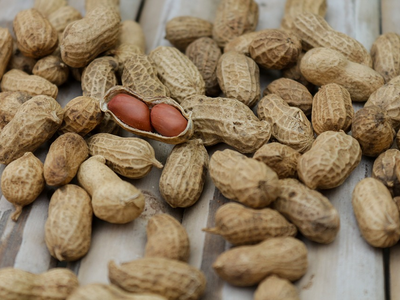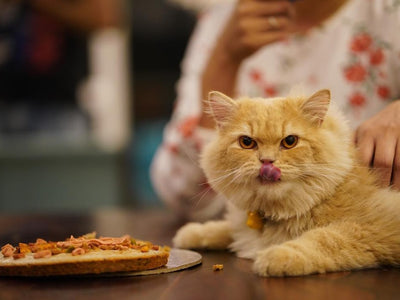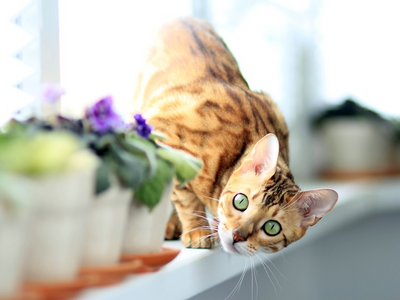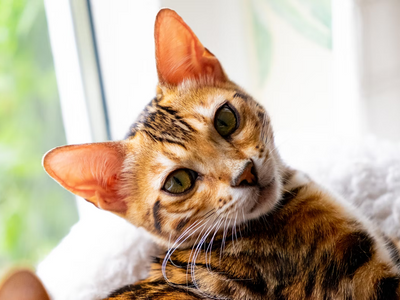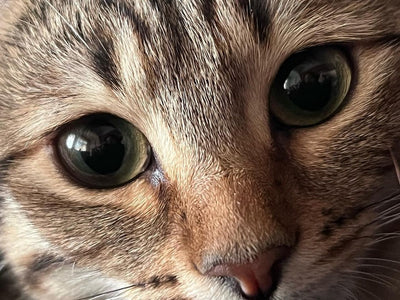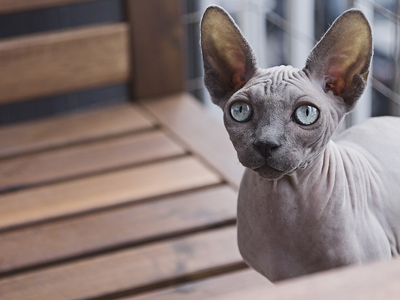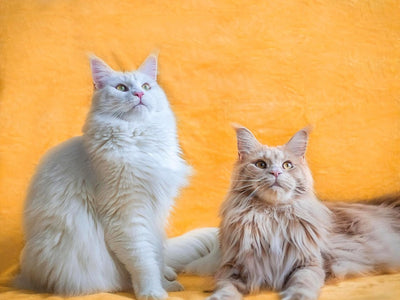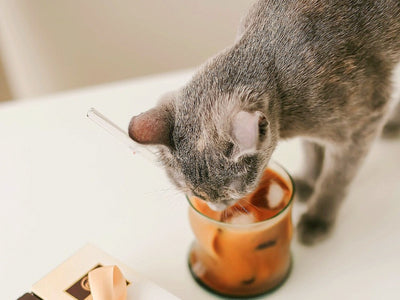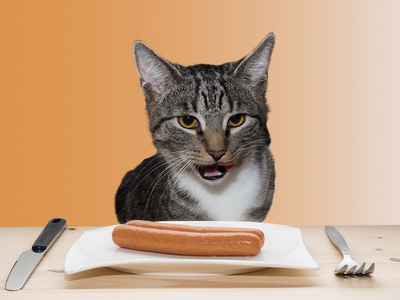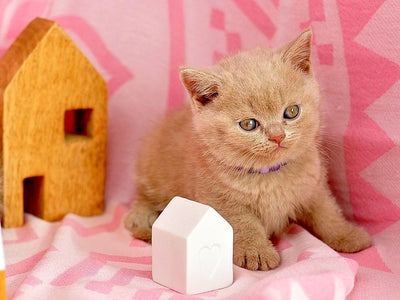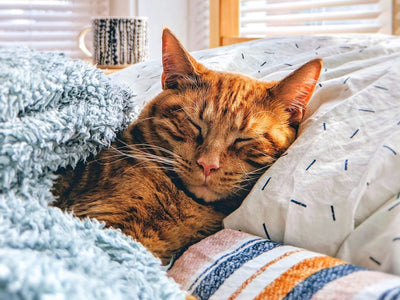14.02.2022
Can cats eat sweetcorn? Get an expert opinion
Corn is a delicious ingredient, and humans come up with countless ways to prepare it (fried, grilled, boiled, and popped). Some cats also like corn, but should it be on their menu? Can cats eat sweetcorn, or is it on the list of forbidden foods? What about other types of corn?
Cats are hardwired carnivores, and while they can handle small amounts of grains, fruits, and veggies, a vegan diet isn’t suitable for them. That doesn’t mean you can’t give a tiny amount of corn to your kitty as a snack, but basing their diet on sweetcorn is not a good idea.
To tackle the issue, we’ll examine the following:
- Nutritional value of corn
- Effect of corn on cats in different life stages (kitten, adult, and senior)
- Health risks and benefits of different types of corn
- Allowed amount of corn and corn products for cats
- The best food for your cat
In terms of nutrients, is it beneficial for cats to eat corn?
Corn is nutritious for humans. It’s rich in dietary fibre, folate, thiamine, phosphorus, vitamin C, and magnesium. Unfortunately, only herbivores and omnivores can benefit from these nutrients. Carnivores can only absorb and utilise nutrients from meat, so corn is redundant in your cat’s diet.
Despite the lack of nutritional value for cats, many cat food manufacturers use corn as a cheap way to boost the calorie content of their products.
Some veterinarians speculate that cats can become allergic to corn (or other ingredients commonly present in cat food, such as wheat or beef) if they are consistently fed the same cat food containing it. Since corn is one of the most common allergens for cats, hypoallergenic products are corn-free.
How does sweetcorn affect cats in different life stages?
When kittens start weaning, they show interest in their cat parent’s food. If you have a kitten trying to nibble on the corn on your plate, don’t let them. All cats need more than 50% protein in their diet. Protein is crucial for kittens because it enables them to develop properly.
Adult cats can have some sweetcorn occasionally as long as it doesn’t exceed 3% of their total daily food intake and they are not allergic to it. The dietary fibre in corn could even stimulate their digestion.
Senior cats spend less energy, so their daily caloric needs drop. A treat for an adult cat would be inadequate for elderly feline because of different caloric needs. If your feline companion is approaching their golden years, avoid giving them sweetcorn. Vets recommend treating them to high-protein cat food to maintain mobility and muscle tone and ensure a healthy and happy seniorhood.
Can cats eat corn on the cob?
Cats can eat corn on the cob as long as they don’t nibble on the cob itself. Specialists claim that corn cobs and husks cause indigestion. Corn husks could even cause gastrointestinal obstruction.
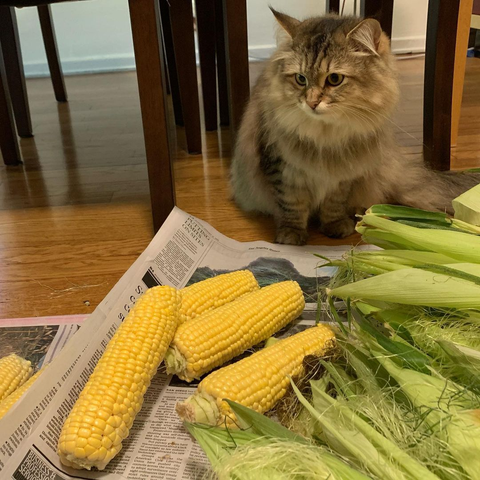
Mum, did you have to make a mess in the kitchen? And when is lunchtime?
Source: thingsilove66
What is the best way to serve corn snacks to cats?
Let’s take a closer look at how the feline organism reacts to sweetcorn and various corn products, such as:
- Corn chips
- Popcorn
- Pastry
- Fried corn kernels
- Cornmeal
Sweetcorn—can it pass as a snack for cats?
If you’re going to let your cat nibble on sweetcorn as a snack, avoid any seasoning. The safest way to serve it to cats is to remove it from the cob, grill or boil it, and then blend it with a food processor.

If this is your idea for lunch, I don’t like it.
Source: saiwet.oh.meow
Can cats eat corn chips?
Corn chips are bad for cats because they’re usually packed with harmful ingredients, such as:
- Salt (in large amounts)
- Spices
- Preservatives
Snacking on fatty corn chips can cause quick weight gain, potentially leading to obesity, diabetes, and other health complications.
Is popcorn good for cats?
Your cat won’t feel bad if they eat one or two bland popped kernels. The problem with popcorn is that the shell could get stuck in your cat’s throat and cause dry heaving. Popcorn toppings and seasonings, such as butter, cheese, chocolate, salted caramel, etc., are off the table for cats as they could cause numerous health problems, from vomiting and diarrhoea to severe poisoning.

Of course, she can have snacks, and I’m supposed to watch.
Source: betaray_clau
Is corn pastry a viable snack for cats?
Plain white bread is bad for cats as it is 50% carbohydrates. Cornbread and tortillas are lower in carbs but have no nutritional value for cats. These products may make your kitty feel full, but the lack of absorbable nutrients will make them hungry pretty quickly. Overeating, especially accompanied by nutritional deficiency, would lead to unhealthy weight gain and other health problems.
Yeast in raw dough is another health hazard. Whenever you’re baking, keep your furry friend away because yeast can turn into alcohol in your kitty’s gut and wreak havoc in their organism.
Should cats eat fried corn kernels?
Of all corn products, fried corn kernel snacks are the worst for cats. They are high in fat and heavily seasoned, which makes them dangerous to cats. If you suspect that your cat ate some fried corn kernels, take them to the vet.
Can cats eat cornmeal?
Cats seem to enjoy cornmeal the most because of the texture. Despite your feline’s affinity for this product, don’t go overboard with treats because they are super satiating. With poor nutritional value, cornmeal can only lead to undesired weight gain.
How much corn can cats eat?
An average 3–4 kilo cat eats around 120–180 calories per day, so their treats shouldn’t contain more than seven calories. With these numbers in mind, cats can eat the following amounts of corn and corn products:
|
Product |
Allowed amount (in grams) |
|
Sweetcorn (grilled) |
~ 6–8 |
|
Sweetcorn (boiled) |
~ 5–7 |
|
Tortilla (plain) |
~ 3–4 |
|
Popcorn |
~ 1–2 |
|
Cornmeal |
~ 1–2 |
|
Cornbread |
~ 1–2 |
|
Fried corn kernels |
1 |
Why does your cat eat corn?
Carnivores are not supposed to crave sweetcorn or any other type of corn. If your cat keeps eating it, it’s probably because:
- They like the taste, even though that’s rare
- Their food is nutritionally insufficient, so they’re craving more and go for whatever they can reach
Since corn is redundant in your cat's diet, it’s important to determine why they like it. An inadequate diet is a more plausible reason. Giving your cat poor-quality food long-term could lead to nutritional deficiency. Depending on the nutrient lacking in your cat’s food, your furry friend could experience the following symptoms:
- Bald patches
- Dull coat
- Inconsistent stool (diarrhoea or constipation)
- Sudden changes in behaviour, such as lethargy
- Odd skin pigmentation
- Fragile bones
- Sudden shifts in weight (typically weight and muscle loss)
- Loss of appetite
- Eye infections
- Incoordination
How to recognise poor-quality cat food
Poor-quality cat food typically contains:
- Meat derivatives—These byproducts (also called animal derivatives) are often waste from the human food industry. The lower the quality of the byproducts, the cheaper they are, so inexpensive cat food is usually full of them
- Vegetable derivatives—Vegetables are unnecessary for cats, and overly processed derivatives of vegetable origin are even worse
- Grain fillers—Corn, soya, wheat, and rice are fillers used to boost the calories of a cat food product
- Artificial colouring and flavouring—Low-quality food contains various taste enhancers to improve the palatability
- Vitamin and mineral supplements—Quality cat food is made from nutritious ingredients. Supplements are often a sign that the manufacturer uses cheap and nutritionally inappropriate ingredients and compensates by adding synthetic micronutrients during production
Wet and dry food can contain these ingredients, so read the label carefully before buying any product for your cat.
What should cats eat if plants are off the table?
Cats thrive on cooked meat and fish. The best nutrient sources for felines are:
- Chicken, turkey, and duck breast
- Salmon and mackerel fillet
- Tuna steak
- Sardines
There are three types of commercial cat food—wet (gravy or jelly), semi-moist, and dry. You can go with any kind of cat food as long as it’s nutritionally complete. The product should have more than 50% protein (a lot of taurine is essential) and up to 20% fat.
Cats get most of their daily water intake from food, so make sure at least one of their daily meals consists of wet food. You can also boost your cat’s water intake by mixing wet and dry food or pouring water, soup, or broth over biscuits. The former combines the best of both worlds while the latter enhances the texture and prominent taste of dry cat food.
If you want to spice up your cat’s menu but keep it healthy, you can occasionally add tiny bits of ham, bacon, liver, or prawns to their meals.
Considering how many cat food products exist, choosing the right one for your furry friend can be challenging. If you’re looking to upgrade your cat’s diet and improve their well-being, try Untamed.
Pamper your cat with Untamed
Untamed is proud that our meals are:
- Vet-formulated—Our recipes are created to meet the nutritional requirements of cats in any life stage (kitten, senior, or adult) and of any breed (Bengal, Persian, Siamese, Ragdoll, Maine Coon, British Shorthair, and others)
- Ethically produced—We use cruelty-free human-grade ingredients, environmentally-friendly production methods, recyclable packaging, and our operations are carbon-neutral
- Rich in protein—Untamed recipes contain double the protein than standards set by the pet food industry
- Gently cooked—Ingredients are gently steamed to keep the aroma and nutrients intact
- Free of preservatives and other unnecessary ingredients and chemicals—Healthy and natural cat food never tasted this good
- Ready-to-serve—Untamed products require no thawing or extra prep—open the tin, and you’re good to go
Our product range meets every picky feline’s preferences and is suitable for sterilised and pregnant cats, too. If your kitty is sensitive, try our single-source protein products—Chocka Chicken and Tuck-in Tuna.

No feline fish enthusiast can resist our Tuck-in Tuna!
Image (c) Untamed
What makes Untamed special?
Untamed is super healthy and delicious to felines. The following table contains a summary of the feedback we’ve received from clients who use our monthly cat food subscription service:
|
Timeline |
Observed changes |
|
Week one |
|
|
Month two |
|
|
Month four |
|
|
Month six and beyond |
|
If you want to treat your cat to high-quality cat food with a homemade flair—order your taster pack NOW!

This is delicious. Why didn’t we order this sooner?
Image (c) Untamed
How to order Untamed
Are you ready to witness the power of high-quality cat food? To get Untamed delicacies delivered to your doorstep with free shipping, follow these steps:
- Visit the TRY NOW page on our website
- Complete the short quiz about your cat’s life stage, allergies, and taste preferences
- Review the meal plan and confirm your first order
Your tailor-made taster pack will reach your address in one business day. Shipping is always free, so if your kitty grows fond of our meals, we’ll replenish your stock every month. Our cat food delivery system is designed to offer flexibility—you can modify, reschedule, pause, or cancel your upcoming delivery at any moment.
Tips on switching your cat from one food to another
Most cats dislike change, so don’t be surprised if they reject their new wet food before giving it a try.
If you don’t know how to switch your cat to the new food, here’s a neat trick:
- Replace 10% of your cat’s old food with the new product
- Keep increasing the new food by 10% until the old food is entirely phased out
Should your kitty react badly to the changes, slow down the process and replace 5% of the old food every day. It’s crucial not to make any abrupt changes in your cat’s diet or feeding schedule because the shock could lead to gastrointestinal problems, such as vomiting and diarrhoea.
Other plants your cats can eat
Cats are curious creatures and sometimes show interest in their human’s food. Despite being obligate carnivores, cats can have bite-sized portions of fruits, vegetables, and grains occasionally. Check the following table to learn about snacks your cat’s organism can tolerate in small amounts:
|
Fruits |
Vegetables |
Grains |
|
|
Forbidden snacks for cats
The following table presents different products that can harm your cat. Some cause damage if fed regularly, while others are toxic even in tiny amounts:
|
Products |
Why shouldn’t cats eat it? |
|
Raw food can easily be contaminated with parasites, bacteria, viruses, and fungi, so you might want to skip the occasional raw chicken treat. Raw bones could also cause internal injuries and gastrointestinal obstruction |
|
|
Prey (mice and birds) |
Outdoorsy cats love to hunt, but their prey could pass them an infection, or even worse, deliver poison to their body |
|
Citrus fruits |
Citric acid causes mild to severe stomach upsets but also central nervous system depression |
|
Products containing cocoa (such as chocolate) |
Theobromine and caffeine are toxic to cats |
|
Allium vegetables (onions, garlic, chives, leeks, scallions, etc.) |
The disulfides and thiosulphates present in these vegetables destroy red blood cells in cats causing hemolytic anaemia |
|
Nuts (and products containing them, such as peanut butter) |
Nuts cause stomach upsets in cats due to their high fat content. Macadamia nuts are especially dangerous |
|
Houseplants |
Many popular houseplants are toxic to cats. If your cat likes nibbling on your indoor garden, you should learn more about plants cats can and can’t eat |
|
Contrary to popular belief, milk isn't good for cats because most felines are intolerant to lactose. Some kitties are allergic to casein (milk protein) |
|
|
Coconut |
Coconut flesh causes stomach upsets while the water is so rich in potassium it could acidify your cat’s blood |
Check out our other guides to what cats can or cannot eat:
|
|

![Associated image for What human food can Sphynx cats eat? [Comprehensive list]](http://untamed.com/cdn/shop/articles/what_human_food_can_sphynx_cats_eat_Featured_400x300_crop_center.jpg?v=1648705074)
